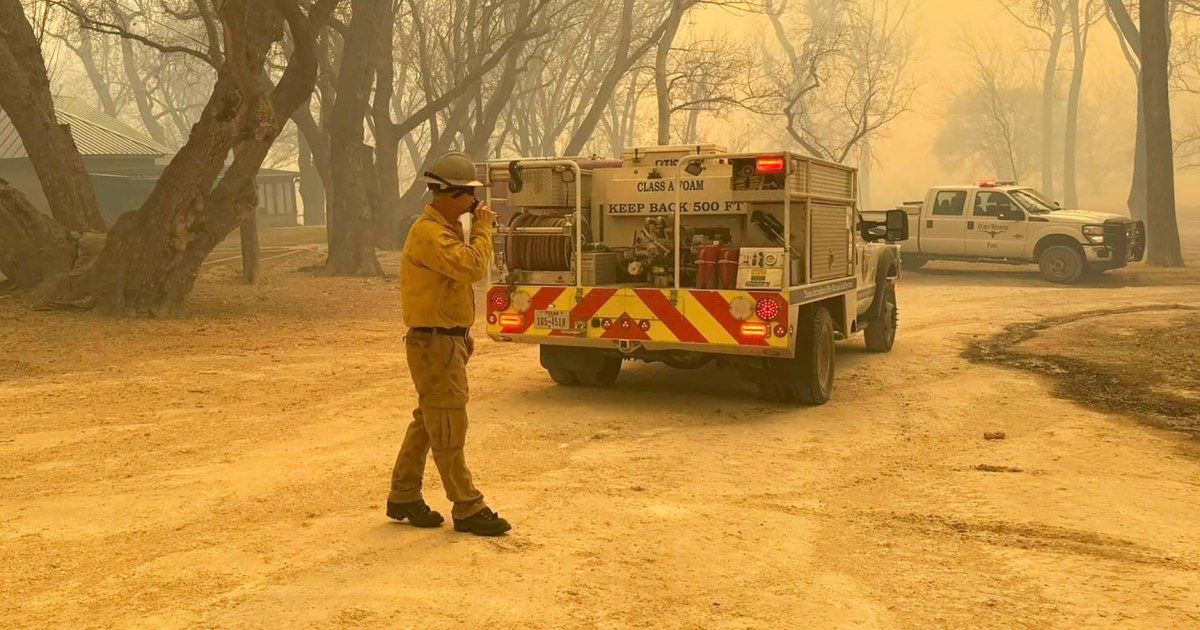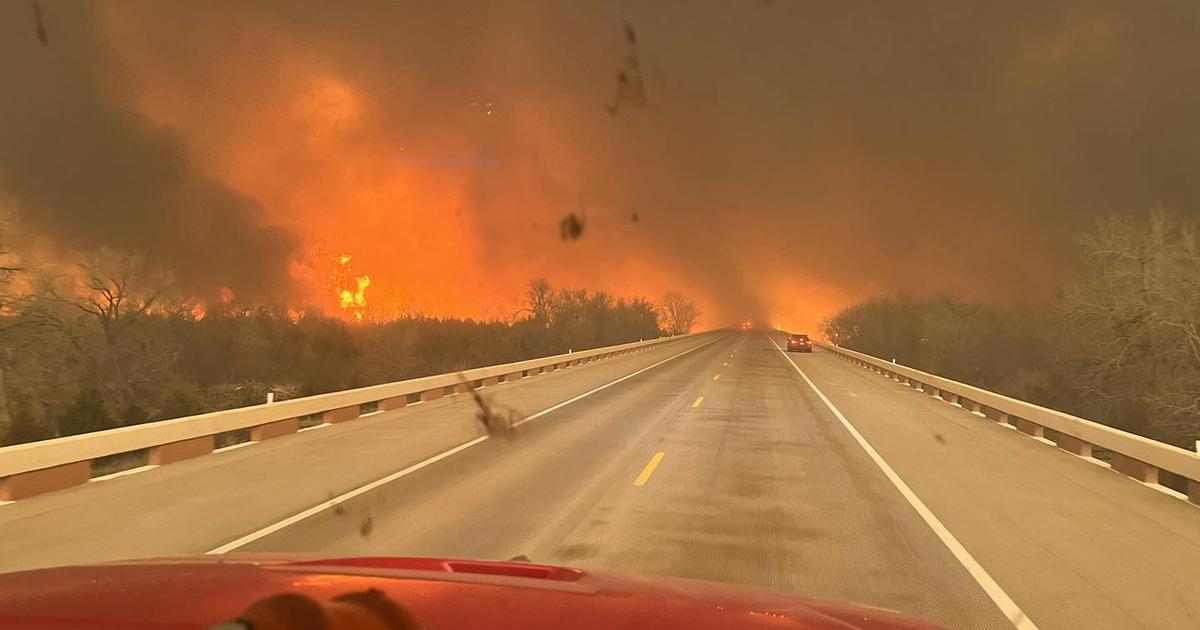Canada struggled Wednesday to combat an extraordinary outbreak of wildfires across the country that sent smoke across the border and forced millions of Canadians and Americans to stay indoors as skies darkened across large parts of both nations.
In Canada, more than 400 fires have burned, and this year's blazes have already burned an estimated 4 million hectares of forest — more than 10 times the area that had burned by this time last year, according to authorities — sending smoke along the U.S. East Coast, from New York to Washington, D.C. and as far west as Minnesota.
A plane drops a mixture of water and fire retardant on a wildfire in Barrington Lake, Nova Scotia, last week. Photo Government of Nova Scotia, via Reuters
In Canada, a country known for its picturesque landscapes and order, wildfires have stoked national anxiety.
They have also strained firefighting resources in a sprawling, decentralized country where firefighting is managed at the provincial level, and have made coordination difficult at a time when global warming has intensified the wildfire season.
In Ottawa, Ontario, the capital, the sense of a country under siege was heightened Wednesday by the sight of thick haze looming over Parliament Hill and the towering Gothic-style building that is part of Canada's Parliament.
Facing a grassland fire behind a residential property in Kamloops, British Columbia, on Monday. Photo by Darryl Dyck/The Canadian Press, via Associated Press
The effects of the Canadian wildfires stunned the United States.
Smoke darkened NewYork's skyline on Wednesday, turning the outlines of its skyscrapers into ghostly silhouettes.
Climate research suggests that heat and drought associated with global warming are the main reasons for the increase in larger and stronger fires in Canada.
Canada has the largest intact forest ecosystem in the world.
Drought and intense heat, which many parts of the country have experienced recently, can make trees vulnerable to fire and dry out dead grass, pine needles and any other material from the bottom of the forest floor that acts as firewood when a fire sweeps through a forest.
Wildfire experts see the signs of climate change in the dryness, intense heat and longer duration of the fire season, which have made these fires more extreme.
Across North America, travelers donned COVID masks to walk the streets; schools cancelled field trips and some closed; flights were cancelled; And authorities urged millions of people to stay indoors assmoke blocked the sun.
New York topped the list of the world's most polluted major cities Tuesday night, as smoke from the fires continues to blanket the East Coast. David Dee Delgado/Getty Images/AFP (Photo by David Dee Delgado/GETTY IMAGES NORTH AMERICA/Getty Images via AFP)
In Canada, wildfires have claimed a high number of victims, including tens of thousands of displaced people.
Alert
The level of unpredictability caused by the flames is so high that British Columbia's provincial authorities have warned local residents to have an emergency bag ready, along with an evacuation plan.
Millions of Canadians in Ottawa, Toronto and Montreal woke up Wednesday to a haze of smoke over large areas of their cities as wildfires spread to places that until then had seemed immune to fires burning in faraway provinces.
Canadian Prime Minister Justin Trudeau said hundreds of troops had been deployed across the country to help with firefighting efforts.
"Unfortunately, in recent years we have seen extreme weather events increase in intensity and impact on Canadians, as well as in cost to families, provinces and the federal budget," Trudeau said.
An apocalyptic beige haze swept over northeastern U.S. cities throughout Wednesday, sparking New Yorkers' anxiety about climate change and health warnings from New York Gov. Kathy Hochul and New York Mayor Eric Adams.
In the hardest-hit cities, including Buffalo and Binghamton in upstate New York, thick orange clouds plunged the area into unusually cold temperatures while worsening conditions across the Northeast.
Schools in New York and Washington canceled outdoor activities during the day, New York zoos closed early out of concern for the animals and Philadelphia warned residents to stay indoors.
Smoke and poor air quality also led to the cancellation of several cultural shows and sporting events, including a New York Yankees game in the Bronx and a Phillies game in Philadelphia.
When smoke seeped into New York theaters, alarming moviegoers and performers, the Broadway production of "Hamilton" and a free Shakespeare in the Park production of "Hamlet" canceled performances.
"People are afraid to go out with this smoke," said Remy Hernandez, 40, a Bronx resident who delivers food orders for Uber Eats and DoorDash. "It seems to me that the world is ending."
Prognosis
Foggy conditions in New York are likely to continue Thursday and Friday, and could persist through the weekend, according to Basil Seggos, commissioner of the New York State Department of Environmental Conservation.
On Wednesday, he told reporters that clearing the sky would require an act of God.
"We will pray that it rains in the north and the winds change," he said.
Much of New York state was under an air quality health alert that would remain in effect through Wednesday night.
On Wednesday afternoon, the air quality index in the New York region topped 400, the worst since the Environmental Protection Agency began recording air quality measurements in 1999.
Such a reading indicates that the air is unhealthy for all people, not just the most vulnerable, and is typical in smog megacities like Jakarta, Indonesia, or New Delhi.
But it's unusual in New York, where decades of state and federal laws have helped reduce emissions and clean up the air, especially in middle- and upper-class neighborhoods.
The scope and scale of wildfires in Canada have highlighted the challenges of fighting fires in such a vast country.
Wildfire emergency management is the responsibility of each of Canada's 10 provinces and three territories, but the hundreds of wildfires that have broken out across the country have strained local resources and renewed calls for a national firefighting service.
"It's unusual for so many wildfires to occur at the same time across Canada," said Rob Schweitzer, executive director of BC Wildfire Service of British Columbia.
"In the past, provinces have been able to share resources, but now that is under pressure given the number of fires in the landscape."
Richard Cannings, MP for the New Democratic Party, said bushfire activity had made it imperative to maintain a national stockpile of equipment, such as a squadron of water bombers, that could be deployed quickly.
Speaking to reporters Wednesday, Trudeau did not address the call for a national firefighting service, but said his government was considering the creation of a federal disaster response organization.
"We need to continue to make sure that we are doing everything we can both to keep Canadians safe when these extreme weather events occur, and to make sure that we are doing everything we can to predict, protect and act before more of these events occur."
Firefighters from the United States, South Africa, France, Australia and New Zealand, along with members of the Canadian Armed Forces, were supporting the overwhelmed teams of local firefighters.
In recent weeks, wildfires in Canada have spread nearly 2,900 miles from British Columbia on the west coast to Nova Scotia in the east, convulsing the country, raising fears of livelihood loss, burning property and endangering health.
Health authorities have warned that smoke from the fire can cause symptoms ranging from irritated and watery eyes to coughing, dizziness, chest pains and palpitations.
Some health authorities have advised residents to wear protective masks, evoking bad memories of pandemic times.
Hochul, of New York, said the state was releasing 1 million N95 masks from its stockpile to hand out in public places like parks and subway stations.
Forecasters said they expected the plume of smoke lashing Toronto, Canada's largest city and its financial capital, to worsen Thursday due to winds, and Environment Canada warned residents to prepare for worsening air quality.
In Ottawa, the Ottawa Redblacks, the city's Canadian Soccer League team, switched from outdoor workouts to indoor ones.
And in Toronto, the Blue Jays announced they would close their indoor stadiums for a game against the Houston Astros on Wednesday night.
Forest fires also affected businesses, and many mining companies suspended their activities in Quebec.
Fires have been rocking British Columbia and oil- and gas-producing province Alberta for weeks.
About 29,000 people were evacuated from Alberta, a number that had dropped Wednesday to 3,900.
On Canada's east coast, in Halifax, Nova Scotia, a wildfire late last month forced the evacuation of more than 16,000 people.
In Ottawa on Wednesday, Bogdan Wozniak, 72, a distraught vendor of hot dog stands, said his business had always depended on weather conditions, but smoke or fire were challenges on another level.
"For smoke you can't be prepared," he said.
"You have the mask," he said. "That's it.
"I will be lucky if I break even today," he added.
c.2023 The New York Times Company
See also





/cloudfront-eu-central-1.images.arcpublishing.com/prisa/A3CIAJJPYZJHVDEJJ5NWRRSTFM.jpg)








